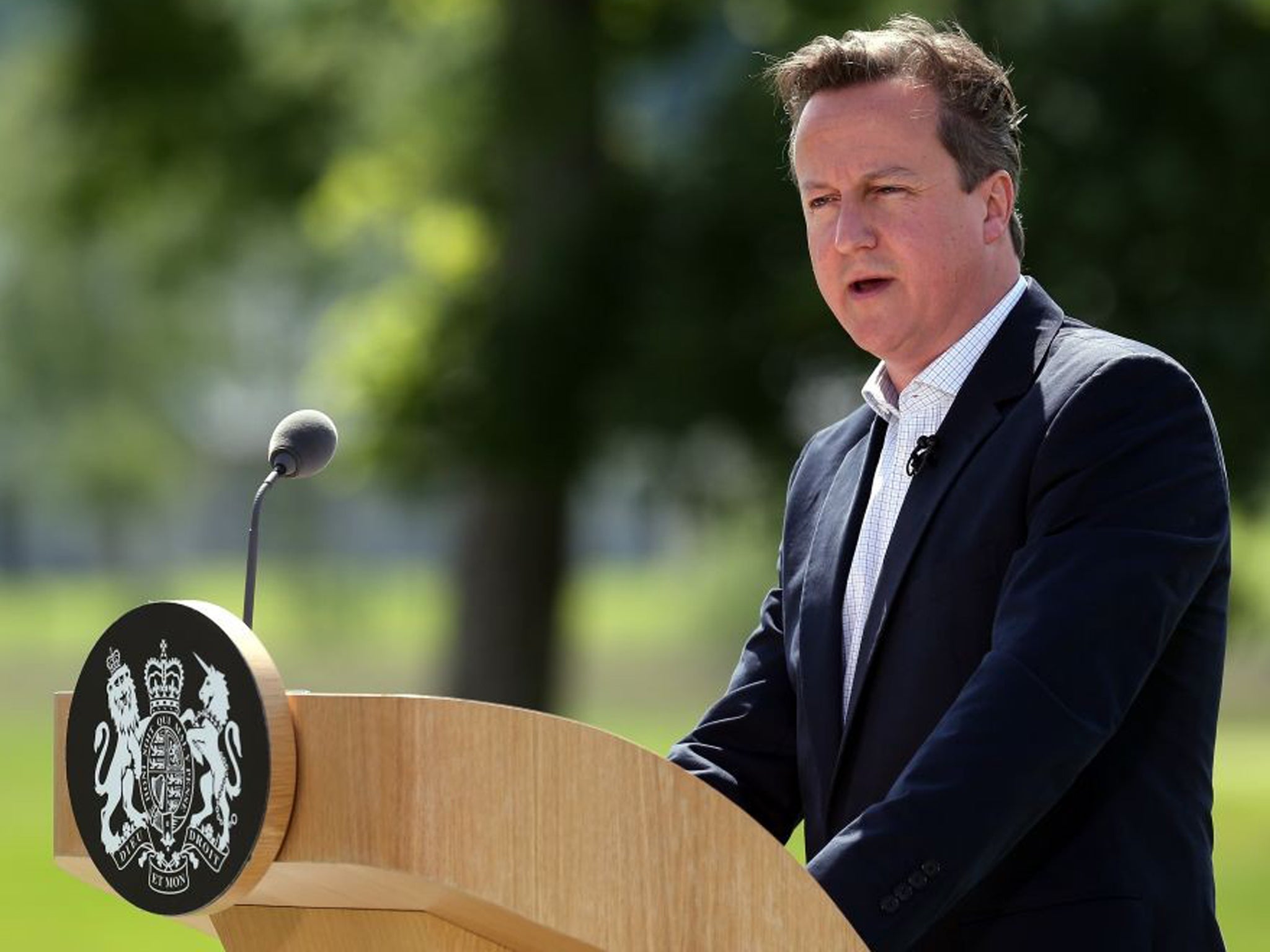G8 summit: David Cameron hails landmark deal to rewrite world rules to stamp out tax evasion
Aid agencies warn that the measures did not go far enough as new registers revealing who owns and controls companies would not be made public

David Cameron has hailed a landmark deal to rewrite global rules to stamp out tax evasion and stop companies shifting profits between countries to limit their tax payments.
But aid agencies warned that the measures did not go far enough. They expressed concern the world’s poorest countries would not be covered immediately and that new registers revealing who owns and controls companies would not be made public, with access limited to tax authorities.
The most significant measure was a commitment to reveal such “beneficial ownership,” which could be a turning point in the battle against tax evasion and aggressive tax avoidance. The target is anonymous “shell companies” linked to money laundering, terrorist funding, tax evasion and corruption including profits siphoned off from poor nations which end up in tax havens.
The United States, Canada, France and Italy joined the UK in agreeing to set up registries, and it is hoped the momentum towards them will be unstoppable.
The G8 leaders also backed a global push for automatic tax information sharing between countries. After controversies over firms such as Google, Amazon and Starbucks, the summit declaration said: “Countries should change rules that let companies shift their profits across borders to avoid taxes, and multinationals should report to tax authorities what tax they pay and where.”
But the statement said only that developing countries “should have the information and capacity to collect the taxes owed them”, rather than guaranteeing them automatic access to the information from the start.
Mr Cameron insisted that the Lough Erne agreement “has the potential to rewrite the rules on tax and transparency for the benefit of countries right across the world, including the poorest countries in the world.” He told journalists: “We have commissioned a new international mechanism that will identify where multinational companies are earning their profits and paying their taxes so we can track and expose those who aren't paying their fair share.” He said the scheme to be developed by the Organisation for Co-operation and Development would help ensure “proper tax justice in our world”.
Aid groups praised Mr Cameron for forcing tax and transparency on to the G8’s agenda but said the summit had fallen short. Sally Copley, spokesperson for the IF campaign against global hunger, said: “The tax deal is a step in the right direction, but it also leaves major unfinished business. Although the G8 has set out the right ambition on information exchange, poor countries battling hunger can’t afford to wait to be included. It’s progress that more tax authorities will know who owns phantom firms so they can crackdown on them, but a summit focused on transparency can’t justify keeping this information secret. The public argument for a crackdown on tax dodging has been won, but the political battle remains.”
Adrian Lovett, Europe executive director of the ONE campaign, said: “A transparency revolution has begun.” Bu he added: “Despite the leadership demonstrated by the UK and France, the G8 collectively has taken only small steps to crack down on the phantom firms that play such a role in robbing Africa of its resources.”
He added: “David Cameron and François Hollande must now lead the fight in Europe, driving efforts to get EU members to agree to make information about who really owns and controls companies public. If African countries are to retain and invest their resources, rather than see them siphoned away by corrupt politicians and irresponsible businesses, this is what is needed. Nothing else will do.”
Soren Ambrose, spokesman for ActionAid, said: ”The G8 insists their new tax information sharing deal needs to include all countries including the poorest, and this is a welcome shift from cosy tax deals for rich countries alone. But it made no concrete commitments yet to ensure that this will really happen or that tax havens will sign up. We still risk a two-tier tax system emerging, with developing countries left trailing.”
Join our commenting forum
Join thought-provoking conversations, follow other Independent readers and see their replies
Comments